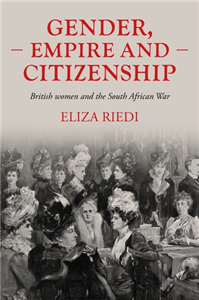Description
More Information
Rights Information
Albania, Algeria, Angola, Argentina, Armenia, Australia, Austria, Bahrain, Belgium, Belize, Benin, Bolivia, Bosnia and Herzegovina, Botswana, Brazil, Bulgaria, Burkina Faso, Burundi, Cameroon, Canada, Cape Verde, Central African Republic, Chad, Chile, China, Colombia, Comoros, Congo [DRC], Congo, Republic of the, Costa Rica, Ivory Coast, Croatia, Czech Republic, Denmark, Djibouti, Ecuador, Egypt, El Salvador, Equatorial Guinea, Eritrea, Estonia, Ethiopia, Faroe Islands, Finland, France, French Guiana, Gabon, Gambia, Georgia, Germany, Ghana, Greece, Guatemala, Guinea, Guinea-Bissau, Guyana, Honduras, Hongkong, Hungary, Iceland, India, Indonesia, Iran, Iraq, Ireland, Israel, Italy, Japan, Jordan, Kazakhstan, Kenya, Kuwait, Latvia, Lebanon, Lesotho, Liberia, Libya, Lithuania, Luxembourg, Macau, China, Macedonia [FYROM], Madagascar, Malawi, Malaysia, Mali, Malta, Mauritania, Mauritius, Mayotte, Mexico, Mongolia, Montenegro, Morocco, Mozambique, Namibia, Netherlands, New Zealand, Nicaragua, Niger, Nigeria, Norway, Oman, Pakistan, Panama, Paraguay, Peru, Philippines, Poland, Portugal, Puerto Rico, Qatar, Reunion, Romania, Russia, Rwanda, Saint Helena, Sao Tome and Principe, Saudi Arabia, Senegal, Serbia, Seychelles, Sierra Leone, Singapore, Slovakia, Slovenia, Somalia, South Africa, South Korea, Spain, Sri Lanka, Sudan, Suriname, Swaziland, Sweden, Switzerland, Syria, Taiwan, Tanzania, Thailand, Timor-Leste, Togo, Tokelau, Tunisia, Turkey, Uganda, Ukraine, United Arab Emirates, United Kingdom, United States, Uruguay, Venezuela, Vietnam, Western Sahara, Yemen, Zambia, Zimbabwe, South Sudan, Cyprus, Palestine, Bangladesh, Cambodia, Liechtenstein, Azerbaijan, Jamaica, Kyrgyzstan, Dominican Republic, Myanmar, Monaco
Endorsements
Focusing on the South African War of 1899-1902 this groundbreaking study bridges the gap between traditional imperial history and gender history to explore how British women experienced the empire in the age of the 'new imperialism'. Gender, empire and citizenship reveals how British middle-class women, already well-integrated into party politics and associational culture, responded to the war in South Africa. It explores women's participation in the early anti-war movement, analysing the gendering of peace activism and women's arguments against war. It highlights how military philanthropy allowed patriotic women to make real contributions to the empire's war effort and investigates women's activism in imperial propaganda campaigns 'selling the war' at home and overseas. Casting new light on the concentration camps, it situates Emily Hobhouse within the wider women's 'pro-Boer' movement, provides the first in-depth analysis of the government Ladies' Committee headed by Millicent Garrett Fawcett, and examines how hundreds of British women acted as agents of the imperial state in the camps as teachers, doctors, and nurses. Analysing how gender and race shaped British women's wartime activism and expressions of female citizenship, it traces the consequences for women's public action through the Edwardian era to the First World War. In foregrounding women's agency and activism the book opens innovative new perspectives on British reactions to the South African War. It also offers a snapshot of a vibrant, diverse female political culture as a controversial imperial war forced politically engaged women to articulate their relationship to empire and the state.
Reviews
Focusing on the South African War of 1899-1902 this groundbreaking study bridges the gap between traditional imperial history and gender history to explore how British women experienced the empire in the age of the 'new imperialism'. Gender, empire and citizenship reveals how British middle-class women, already well-integrated into party politics and associational culture, responded to the war in South Africa. It explores women's participation in the early anti-war movement, analysing the gendering of peace activism and women's arguments against war. It highlights how military philanthropy allowed patriotic women to make real contributions to the empire's war effort and investigates women's activism in imperial propaganda campaigns 'selling the war' at home and overseas. Casting new light on the concentration camps, it situates Emily Hobhouse within the wider women's 'pro-Boer' movement, provides the first in-depth analysis of the government Ladies' Committee headed by Millicent Garrett Fawcett, and examines how hundreds of British women acted as agents of the imperial state in the camps as teachers, doctors, and nurses. Analysing how gender and race shaped British women's wartime activism and expressions of female citizenship, it traces the consequences for women's public action through the Edwardian era to the First World War. In foregrounding women's agency and activism the book opens innovative new perspectives on British reactions to the South African War. It also offers a snapshot of a vibrant, diverse female political culture as a controversial imperial war forced politically engaged women to articulate their relationship to empire and the state.
Author Biography
Eliza Riedi is a Lecturer in Imperial History at the University of Leicester
Manchester University Press
Manchester University Press is a leading UK publisher known for excellent research in the humanities and social sciences.
View all titlesBibliographic Information
- Publisher Manchester University Press
- Publication Date October 2025
- Orginal LanguageEnglish
- ISBN/Identifier 9780719079450 / 0719079454
- Publication Country or regionUnited Kingdom
- FormatPrint PDF
- Pages296
- ReadershipGeneral/trade; College/higher education; Professional and scholarly
- Publish StatusPublished
- Dimensions234 X 156 mm
- Biblio NotesDerived from Proprietary 3346
- SeriesStudies in Imperialism
- Reference Code5707
Manchester University Press has chosen to review this offer before it proceeds.
You will receive an email update that will bring you back to complete the process.
You can also check the status in the My Offers area

Please wait while the payment is being prepared.
Do not close this window.



